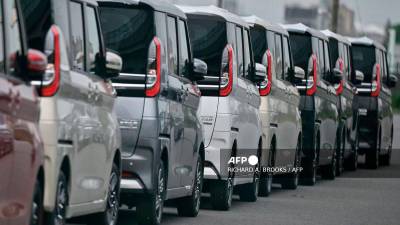WASHINGTON: President Donald Trump signed an executive order on Thursday reducing United States tariffs on Japanese automobiles from 27.5% to 15%.
The White House published the order’s text confirming the new rate structure as part of a broader trade agreement between the two nations. This adjustment represents a significant victory for Japan following weeks of negotiation and diplomatic engagement.
Japanese tariff envoy Ryosei Akazawa travelled to Washington specifically to secure the presidential signature after both countries announced their initial pact in late July.
The 15% tariff cap will apply retroactively to goods shipped from August 7, the effective date of Trump’s earlier tariff increases on dozens of trading partners.
Federal agencies must implement these modifications within seven days of the order’s publication in the Federal Register.
The revised tariff structure eliminates the additional 25% sector-specific duty that Trump had imposed on autos and parts, which had combined with an existing 2.5% tariff to create the 27.5% total rate.
Japan’s automotive sector, which accounts for approximately 8% of the country’s employment, had suffered under the heavier burden.
This agreement provides Japan with relief similar to that granted to the European Union, which also faces a 15% maximum tariff on many products.
Akazawa’s visit also included discussions regarding Trump’s claim that Japan would make $550 billion in United States investments.
The executive order states these investments “will be selected by the United States Government” without providing specific details.
Trump has stated the United States will retain 90% of profits from these investments, which Japan indicates will primarily consist of loans and loan guarantees.
The Nikkei business daily reported that Akazawa had cancelled an earlier visit when Washington considered including reductions in Japanese agricultural tariffs in the presidential order.
Trump has consistently pressured Japan to increase imports of American rice, though this particular issue did not appear in the final agreement. – AFP
